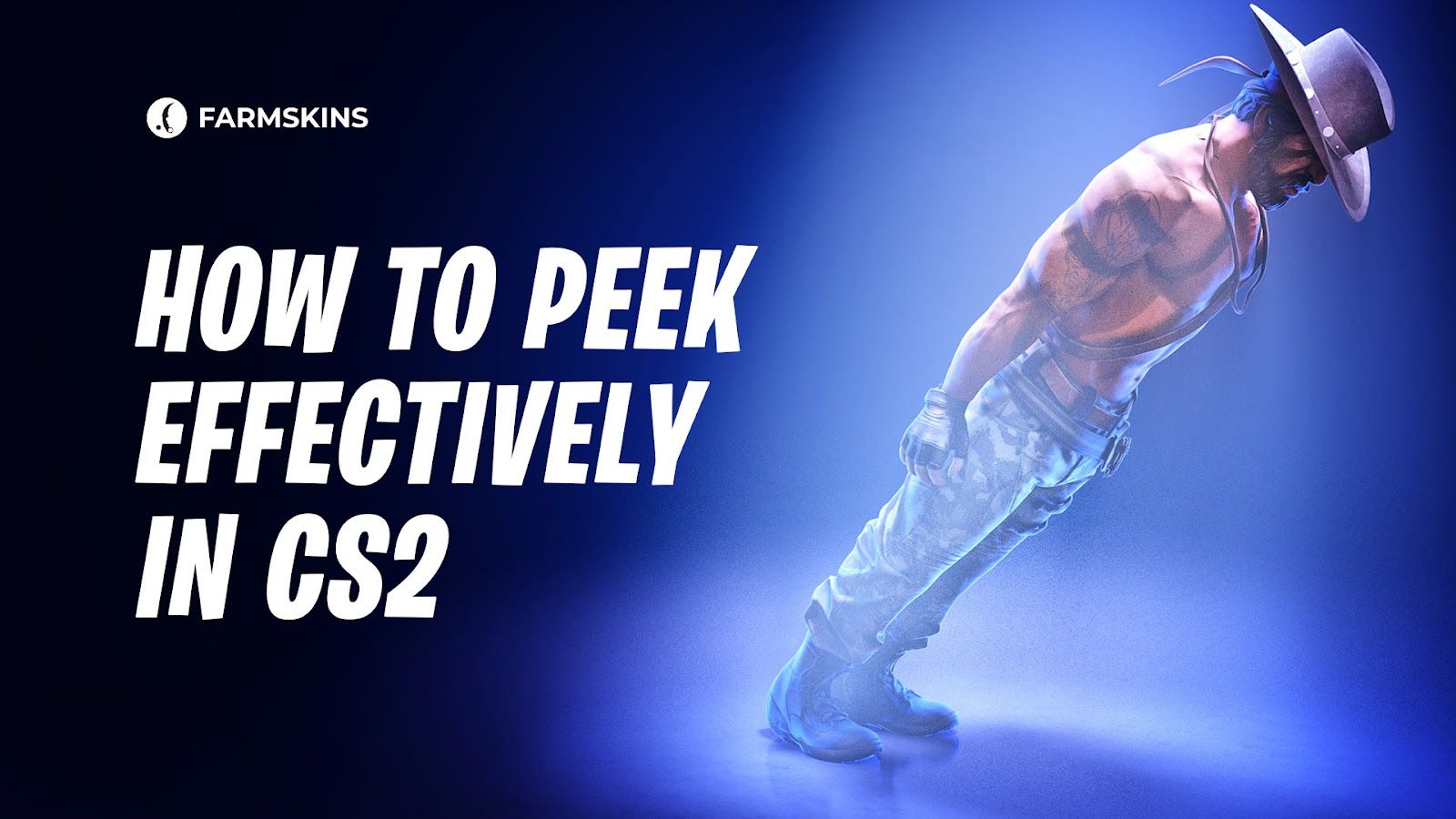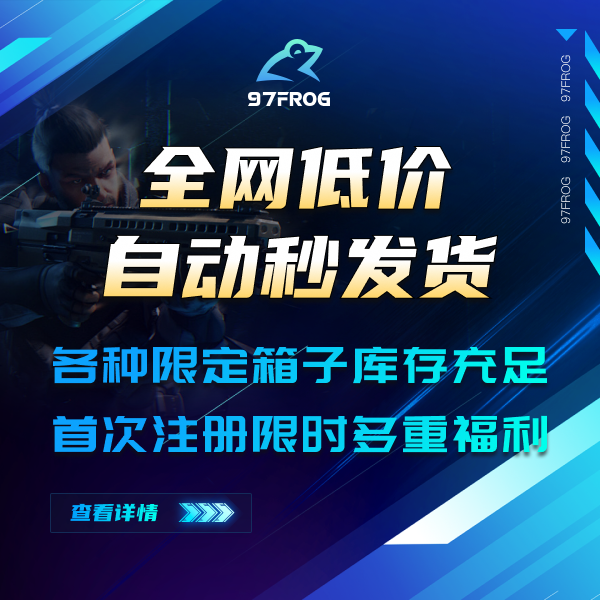How to Peek Properly in CS2: A Complete Guide

Peeking is one of the key mechanics in Counter-Strike 2 that can significantly influence the outcome of a match. It’s not just about looking around a corner, but a strategic move to gather information, bait out shots, or even eliminate an opponent. To peek effectively, you need to know specific techniques, avoid common mistakes, and apply the best strategies in different situations. This guide will break down everything you need to know to master peeking in CS2.
What is Peeking in CS2?
Peeking is a tactical move where a player looks out from behind cover to gather information or engage an enemy. A good peek allows the player to gain an advantage and control key parts of the map, while a bad peek can cost you valuable health or even your life. To peek properly, it’s essential to understand not only the game’s mechanics but also team coordination and timing.
There are several types of peeks in CS2, each suited to different situations. Knowing when and how to use these peeks can give you a crucial edge in battle.

Wide Peek
A wide peek is an aggressive maneuver where the player swings wide out of cover with a large radius of movement. This peek aims to surprise the enemy by catching them off-guard with quick, aggressive action. It’s often used against AWP players to disrupt their aim and force them to miss a shot.
When to use it: When you’re facing an AWP and need to make them miss their shot, or when you need to take an aggressive position quickly.
Everything About Grenades in CS2: Characteristics and Tactical Use
Tight Peek
A tight peek is a more cautious move where the player barely shows themselves from behind cover. This is often used to gather information or check if an enemy is holding an angle. Players frequently combine this with counter-strafing—a technique where the player changes direction quickly to maximize shooting accuracy.
When to use it: Use tight CS2 peeks to safely gather information on critical parts of the map, such as bombsites or long sightlines (like long A or mid).
Jiggle Peek
A jiggle peek is a fast in-and-out movement, where the player quickly exposes themselves and then ducks back behind cover. This type of peek is used to bait out enemy shots, get a quick read on enemy positions, or force a sniper to reload.
When to use it: Jiggle peek is particularly effective against snipers with slow reload times, like AWP players. It forces them to shoot and gives you the opportunity to attack.
How to Peek Properly in CS2
Effective peeking requires an understanding of game mechanics and situational awareness. Here are some key rules on follow how to peek in CS2 properly:
Peek with Teammates
Whenever possible, time your peeks with your teammates. This creates extra pressure on the enemy, making it harder for them to eliminate both of you at once.
Use Utility
Flashes, smokes, and molotovs can greatly enhance your peeks. Flash the enemy to disorient them before peeking, or throw a smoke to block off sightlines. You can also use molotovs to force enemies out of cover or deny them space to hold an angle.
Listen for Sounds
Before you peek, try to listen for footsteps, reloads, or gunshots that can give away the enemy’s position. This will help you prepare for the engagement and potentially give you an edge in timing and aim.
Peek Unexpectedly
Timing your peeks is crucial. Try to peek when the enemy isn’t expecting it, like when they’re reloading or distracted. Changing the pace of the game and using surprise can catch them off guard.
Move While Peeking
When you peek, don’t be a stationary target. Use movement to make it harder for the enemy to hit you. Jiggle peeks or tight peeks can help you avoid being shot while still gathering the necessary information.
Map Knowledge
Knowing the most common enemy positions on the map helps you anticipate where to aim and where enemies might be hiding. Pre-aiming common angles and understanding common setups will help you peek more effectively and avoid walking into traps.
Advantages of a Peeking Player
Players who master peeking have several key advantages in CS2:
-
Surprise Factor: Peeking allows you to catch enemies off-guard, giving you a split-second advantage in reaction time and decision-making.
-
Information Control: A successful peek can reveal critical information about enemy positions, helping your team make better decisions about rotations or site execution.
-
Better Vision: By peeking, you can see more of the map than someone who stays behind cover, giving you a wider view of the situation.
-
Initiative: Peeking lets you choose when and where to engage, giving you control over the pace of the fight.
-
Psychological Pressure: Repeated peeks can make an enemy nervous and prone to mistakes, such as shooting too early or giving away their position.
Common Mistakes When Peeking
Peeking can be powerful, but there are some mistakes that can make even the best players vulnerable:
-
Peeking Without Information: Rushing into a peek without knowing where the enemy is often results in getting surprised or outgunned.
-
Peeking From the Same Spot: If you peek from the same position repeatedly, enemies will predict your movement and be ready to counter you.
-
Overusing Wide Peeks: Overcommitting to wide peeks in CS2 can make you an easy target, as it takes longer to get back behind cover, giving the enemy more time to shoot.
How to Play Against a Peeking Opponent
Playing against a peeking player requires tactical awareness and positioning. Here’s how you can counter them:
Use Grenades
Smokes and molotovs can limit the movement and vision of a peeking player, forcing them to slow down or change their strategy.
Take Advantage of Strong Positions
Holding advantageous positions that cover multiple angles will help you prepare for peeks from different directions. If you’re well-positioned, the peeker is likely to walk into your crosshairs.
Play Defensively
If an enemy is peeking aggressively, don’t rush to engage. Play more passively, wait for them to make a mistake, and capitalize on their overextension.
Conclusion
Peeking is a tactical move that requires careful planning, quick reactions, and a deep understanding of CS2’s mechanics. To master peeking, it’s important to practice regularly, study maps, and analyze your gameplay to identify areas of improvement. Observing professional players can also provide valuable insights into how and when to peek in different scenarios.
Improving your peeking skills and learning how to effectively counter peeking players are essential steps to becoming a more successful and versatile CS2 player. Keep practicing, and you’ll soon be executing perfect peeks and securing those game-changing plays.













